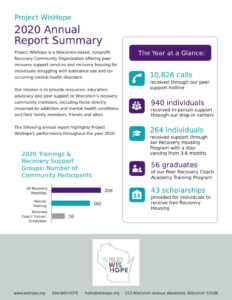Maintaining a relationship through recovery from alcohol and/or substance use disorder takes hard work, effective communication, and explicit boundaries. As important as it is to project positivity and optimism, when it comes to setting boundaries the very real prospect of walking away from a relationship turned toxic must be addressed in theory as well as practice. If you or a loved one find each other lashing out, it may be necessary to subtract the conflicting parties from the equation in order to de-escalate tension. Doing so may even accelerate essential steps towards recovering from addiction.
Walking away from an argument to cool off creates space from which individuals can garner invaluable perspective. This cooling-off period might take a matter of hours or it might solidify into a permanent separation. Regardless of the outcome, if the space allows those involved to discover (or rediscover) their dedication to constructing their best self, then the relationship should be celebrated.
Too often, the ending of a relationship is mourned. Obviously, the conclusion of a cherished experience brings sadness. But in a situation where splitting up leads to improved quality of life for all parties, shouldn’t this result merit celebration? Holding onto the past — no matter how unhealthy or traumatic — points to a dissociation from reality, but it is also a side effect of use disorder. The mental toll of addiction often includes gaslighting, especially surrounding the nostalgia of the fleeting “good times.” Leaving unhealthy relationships has the potential to improve the lives of everyone involved, good times be damned.
SIGNS OF A TOXIC RELATIONSHIP
Determining whether a relationship is characterized by more healthy or toxic dynamics can present many challenges, particularly for those also juggling alcohol and/or substance use disorder. While no relationship is perfect, some lingering problems might point towards a more irreparable rift than an occasional disagreement over whose turn it is to do the dishes. These include:
- Gaslighting: This type of emotional abuse comprises any sort of lie or deceit targeted at discrediting another’s knowledge, experiences, or opinions. For relationships where addiction is a factor, this may mean casting doubt on boundaries and expectations surrounding sobriety and abuse. The act of gaslighting can be particularly insidious as a means of wearing down one’s confidence and pride. Without a sense of self-assurance, people begin to feel dependent on those who are actively destroying their mental health.
- Shaming: Similar to gaslighting, shaming assigns blame for actions that are well within the right of any person. Establishing a sense of guilt associated with normal activities lays the groundwork for a paradigm of approval, through which the abuser — and solely the abuser — can “reward” whomever they are currently shaming with their acceptance.
- Lack of Space: The inability to respect or even request personal space through pre-established boundaries can indicate unhealthy codependency. As important as it is to share experiences, denying another person an independent life outside of the relationship neglects their best interests. Impeding on personal time represents a lack of respect and unwillingness to observe the needs of others ahead of their own.
- Walking on Eggshells: Often a result of shaming, a constant fear of judgment reveals the discomfort and mistrust underlying a relationship. No one should have to carry the anxiety of “messing up” through some unpredictable trigger that may set off an explosive episode. Such temperament infringes on one’s self-soothing mental processes to feel comfortable, and the likelihood of emotional outbursts tends to be fueled as a result of alcohol and/or substance abuse. If you or a loved one feels uncomfortable simply existing, the discomfort merits a conversation at the very least.
- Pent-Up Resentment: Holding onto past transgressions — emphasis here on those that were already forgiven at one point — reveals passive-aggressive habits. Over time, relationships can accrue their fair share of compromises. Without communicating the implications and personal reactions to such compromises, room for resentment expands. Holding onto pent-up frustration resulting from unrequited compromise presents a particularly pressurized dynamic for anyone coping with use disorder, as resentment is all too often suppressed by alcohol and/or substances.
PURSUE HEALTHY RELATIONSHIPS
Many learn about the trappings of toxic relationships and wonder, “How could anyone let their romantic interests become so unhealthy?” Aside from the stigma of victim-blaming that is entrenched in this kind of judgment, the reason that relationships become toxic, in part, is due to the lack of representation of healthy and equitable unions. Spending time, energy, and resources for the benefit of a relationship runs counter to most of the cultural messaging in praise of looking out for one’s individualism. As a result, very few examples of a real and mutually beneficial relationship persist in popular culture. If you feel a relationship has turned toxic, do not hesitate in creating space for yourself, and remember to invite a friend, law enforcement officer, or another third party should in-person communications resume in the future.
The ripples of use disorder ebb through personal, professional, and familial relationships. Maintaining intimate relationships in the midst of alcohol and/or substance use disorder often runs parallel to codependency and otherwise enabling behaviors. Emotional and physical abuse are found at much higher rates in relationships when one or more individuals are coping with use disorder. While this doesn’t necessitate the inevitability of toxic relationships, it is important to learn the signs associated with unhealthy relationship habits. By understanding the difference between common disagreements and irreparable rifts, one can more effectively determine when to walk away. Sometimes, removing yourself can even benefit a loved one’s recovery. At WisHope, we understand that the road to recovery is a life-lasting pursuit, and we aim to provide you the tools and resources to do this, long after your stay at our treatment facilities or recovery homes. Don’t wait to get help—call today at (844) 947-4673.


